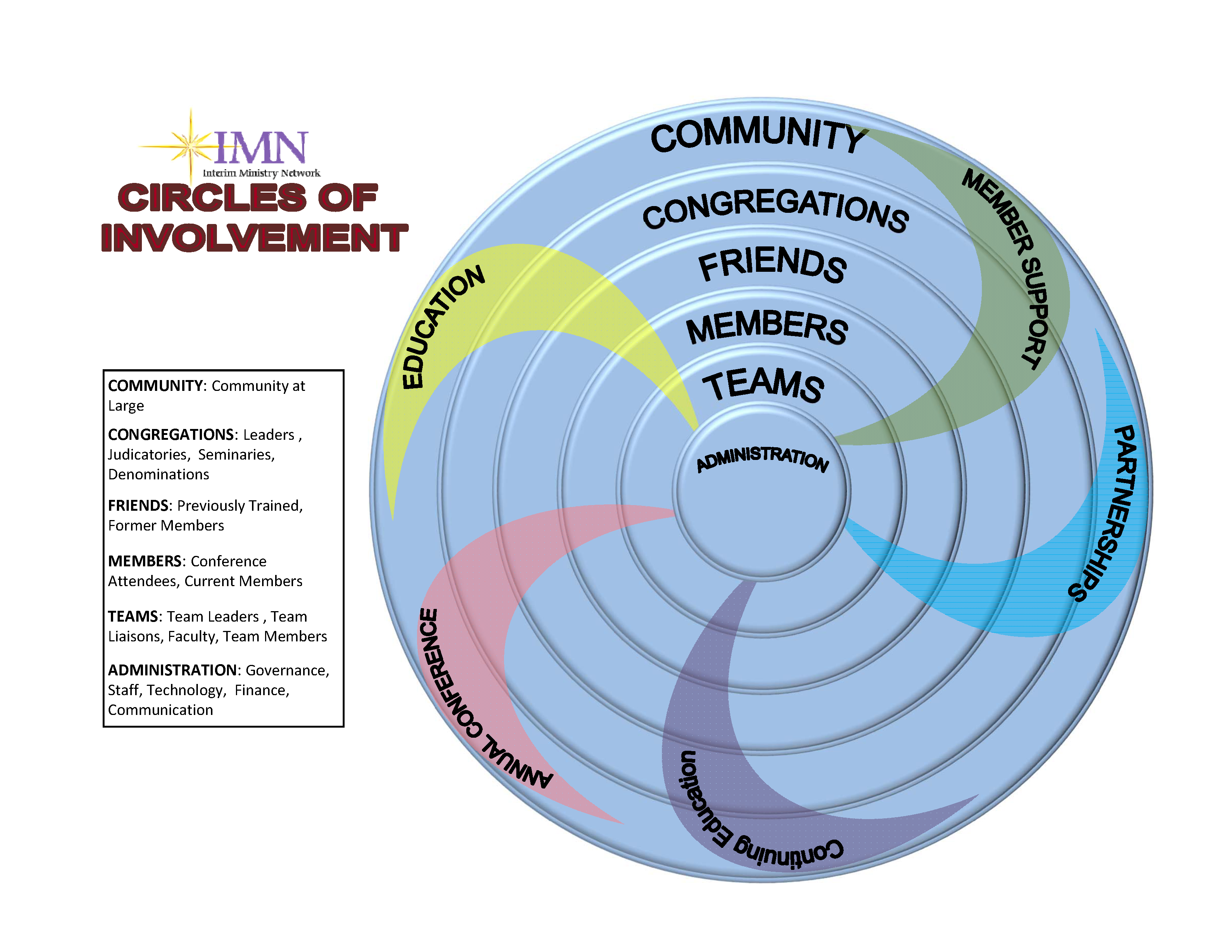ABOUT IMN
This community was developed to provide support and training for those leaders who lead during a time of transition.

For over four decades, IMN has dedicated itself to the health and wellness of faith communities and volunteer organizations. The wellness of these communities is influenced by three kinds of learned leadership skills – prevention of unhealthy practices before they take root, maintenance of health during times of stress or change and restorative care when it is required.
IMN has a skilled and proven faculty who are practicing transitional leaders with years of interfaith education experience. It offers regularly scheduled training programs, dedicated and specific news sources, an annual international conference, and membership in a professional association. IMN provides clergy, administrators and lay leaders with contemporary education and training to help them avoid or reduce the severity of unhealthy practices, manage the effects of change and restore spiritual wellness where it has been lost.
Today IMN consist of clergy, lay leaders and judicatory members. Over 300 transitional leaders are trained yearly with the IMN Fundamentals of Transitional Leadership Training program and the Virtual Annual Conference provides four days of seminars, workshops and keynote speakers, with expertise in their fields of transitional leadership, practical transition applications, spirituality, human behavior, mission and vision, conflict management and many more topics are presented and explored for over 40 years.
Association Information
IMN – The Interim Ministry Network, Inc. is a 501(c)3 association.
Incorporated in the 1983.
Actively registered as a charitable organization with the IRS and the state of Maryland.
IMN 2025-2026 Board of Directors
Mission Statement
By-Laws
Standards of Practice
IMN Team Structure
IMN Structure
 The Circles of Involvement shows that participation is at the heart of IMN. IMN is situated in a world where individuals choose the level of involvement in the organization that is appropriate at any given time.
The Circles of Involvement shows that participation is at the heart of IMN. IMN is situated in a world where individuals choose the level of involvement in the organization that is appropriate at any given time.
In the past IMN has functioned through the leadership of the Board and Executive Director with major work being done through various committees. These committees designed and planned the annual conference, oversaw our faulty and updated curriculum. Many of you were involved in this work.
The Board looked at various ways to extend IMN’s ministry while supporting the current membership. Some of the fruits of this process were Alan Mead’s work as the new Communications Minister and Case Study conversation groups facilitated by Michael Remson.
While excited about these new initiatives, the Board realized that the current structure did not provide the flexibility to support these new activities. After much prayer, reflection, and conversation the Board decided to move to a new way of operating which was announced at the 2015 Annual Conference.
Effective June 2015, each IMN committee and task force became part of a Team. There are four teams: Education, Annual Conference, Member Support, Partnerships and added in 2016 Continuing Education. Each Team is led by a Team Lead, who is not a Board Member. The Team Leads will be assisted by a Board Liaison, who is a Board Member.
The Team structure is intended to be fluid and flexible. One of the goals of this new plan is to have ways to bring more IMN members into leadership positions. We envision that in time more teams will be added. In addition, if any team has too much work, the responsibilities might be amended. In the future there may well be more teams or the categories may change—it all depends upon the needs of the membership. Click here to become a member of a team.
